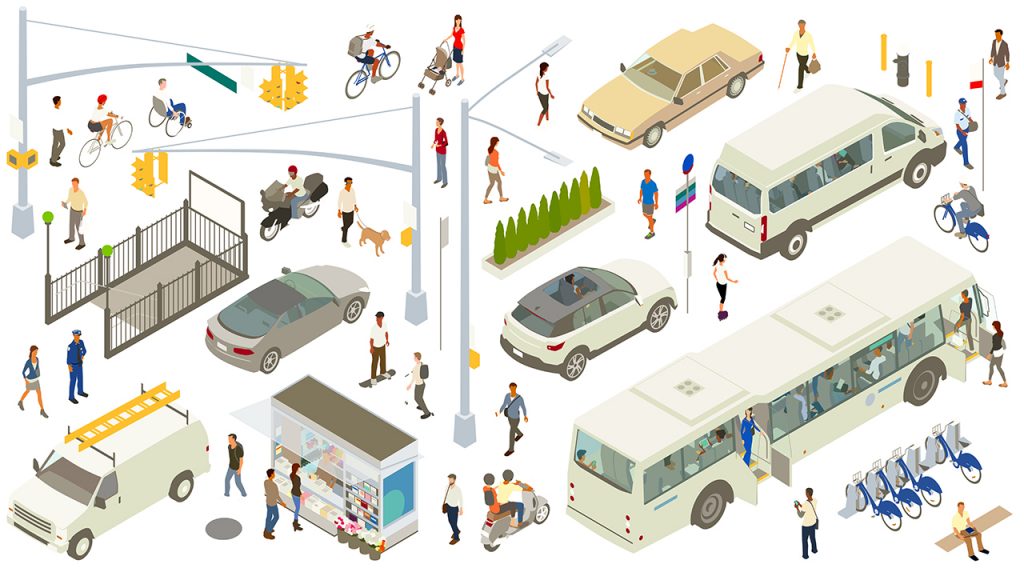Transportation technology has undoubtedly revolutionized the way we travel and connect with the world. From the invention of the wheel to the development of high-speed trains and autonomous vehicles, transportation technology has brought about numerous benefits. However, it is crucial to acknowledge that alongside these advancements, there are also negative effects that warrant our attention. In this article, we will delve into the multifaceted negative impacts of transportation technology, shedding light on its environmental, social, and economic consequences.
- Environmental Degradation:
Transportation technology, particularly the reliance on fossil fuels, has significantly contributed to environmental degradation. The burning of fossil fuels releases greenhouse gases, leading to climate change and air pollution. Additionally, the construction of transportation infrastructure often involves deforestation and habitat destruction, further exacerbating the loss of biodiversity. These negative effects pose a threat to the delicate balance of our ecosystems and the overall well-being of our planet. - Congestion and Traffic:
While transportation technology aims to enhance mobility, it has inadvertently led to increased congestion and traffic in urban areas. The convenience and accessibility of private vehicles have resulted in a surge in the number of cars on the roads, leading to traffic jams, longer commuting times, and decreased productivity. This congestion not only affects individuals but also has a detrimental impact on the economy due to increased fuel consumption and transportation costs. - Public Health Concerns:
The negative effects of transportation technology extend to public health. The emissions from vehicles contribute to poor air quality, leading to respiratory problems and other health issues. Moreover, the sedentary nature of modern transportation has contributed to a decline in physical activity levels, leading to an increase in obesity and related diseases. The noise pollution generated by transportation infrastructure also has adverse effects on mental health and overall well-being. - Social Disconnection:
While transportation technology has made it easier to connect with people across long distances, it has also resulted in social disconnection within local communities. The emphasis on individual transportation has reduced face-to-face interactions and community engagement. Additionally, the development of sprawling suburbs and the prioritization of highways over public spaces have further isolated communities, leading to a decline in social cohesion and a sense of belonging. - Economic Inequalities:
Transportation technology has inadvertently contributed to economic inequalities. The cost of owning and maintaining private vehicles, along with the expenses associated with transportation infrastructure, disproportionately affects low-income individuals and communities. Limited access to reliable transportation options can hinder access to education, healthcare, and job opportunities, perpetuating cycles of poverty and social exclusion.
Conclusion:
While transportation technology has undoubtedly brought about numerous benefits, it is essential to recognize and address its negative effects. By acknowledging the environmental, social, and economic consequences, we can work towards developing sustainable and inclusive transportation systems. Through innovative solutions, such as promoting public transportation, investing in renewable energy sources, and fostering community-centered urban planning, we can mitigate the negative impacts and create a more equitable and environmentally conscious future.
About Author
You may also like
-
Beyond the Horizon: How OHMIEX Builds Communication Gear Riders Can Truly Trust
-
Карго перевозки Китай–Россия под ключ: комплексные логистические решения от компании «Интербиз»
-
Why Choosing the Right FBA Air Express Shipping Service Forwarder Matters for Amazon Sellers
-
Enhance Your BYD 550 with Original BYD Parts 1312461000 High Efficiency Filter
-
FBA Air Express Shipping Service Forwarder: How to Deliver Amazon Inventory Faster and Safer

